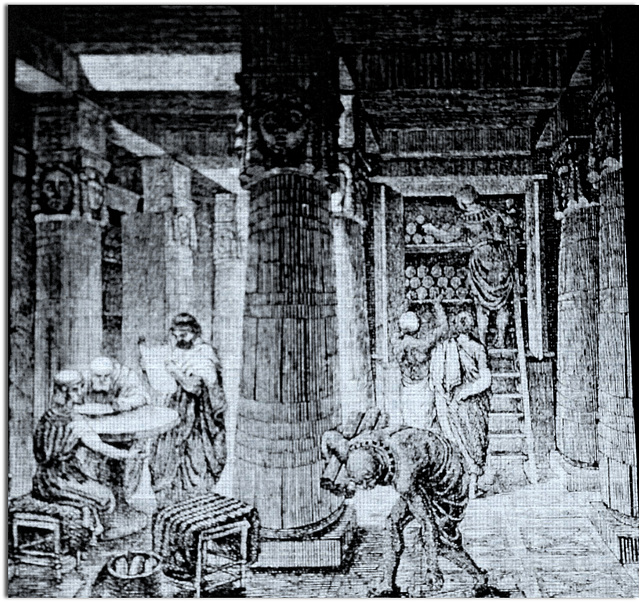El Papagayo
Tapato
Tacco
El Papagayo
Toyota Prius
Shimola
Перестро́йка / гла́сность ~ Perestroika / Glasnos…
Figure 7.8 Arc of Instablity
Into the dusk
AN OCEAN OF AIR*
I'm going to make a cake
Van Allen Belt
Carl Woese compared the genetic sequence of many d…
Toledo Farms
What the plants have to 'say'
Drinking Life To The Lees
On a Winter Morning
On a Winter morning
THE TIDE
The Library hour
Lost in the withering petals
Winter night
A leaf
Dogwood on a Spring day
Pioneer Monument
Queue
Before Smart phones
The Grapes of Wrath
To O'Hara from Jack London
Office - Secretary of State - 1902
Office - Secretary of State - 1902
Library desk - Sacramento CA -1904
Sutro Library, SF. CA 1960s
Mobile Library of the yore
There is no choice to strike off...!
1961 Volkswagen Micro bus
Strike off which is not applicable
Free sampling
AN UNSURPASSED PORTRAIT OF REPUBLIC OF MEXICO
Wine loving Roman /Greek
Rooster & his residence
Rooster & his residence
Keywords
Authorizations, license
-
Visible by: Everyone -
All rights reserved
- Photo replaced on 13 Jan 2018
-
67 visits
Library of Alexandria


- Keyboard shortcuts:
Jump to top
RSS feed- Latest comments - Subscribe to the comment feeds of this photo
- ipernity © 2007-2024
- Help & Contact
|
Club news
|
About ipernity
|
History |
ipernity Club & Prices |
Guide of good conduct
Donate | Group guidelines | Privacy policy | Terms of use | Statutes | In memoria -
Facebook
Twitter

The Library was the idea of Demetrius Phalaerus, an unpopular orator who had been forced to flee Athens, and who eventually found sanctuary in Alexandria. He persuaded Ptolemy to gather together all the great books, assuring that the great minds would follow. . . .. Even tourists to Alexandria could not escape the voracious appetite of the Library. Upon entering the city, their books were confiscated and taken to the scribes. The books were copied so that while the original was donated to the Library, a duplicate could graciously be given to the original owner. . . . . In 1906 J.L. Heiberg discovered in Constantinople just such a manuscript, "The Method," which contained some of Archimedes' original writings. ~ Page 45
During the centuries between Euclid and Diophantus, Alexandria remained the intellectual capital of the civilized world, but throughout this period the city was continually under threat from foreign armies. The first major attack occurred in 47 B.C., when Julius Ceasar attemptd to overthrow Cleopatra by setting fire to the Alexandrian fleet. The Library, which was located near the harbor, also caught alight, and hundred of thousands of books were destroyed. Fortunately for mathematics Cleopatra appreciated the importance of knowledge and was determined to restore the Library to its former glory. Mark Antony realised that the way to an intellectual's heart is via her library, and so marched to the city of Pergamum. This city had already initiated a library that it hoped would provide it with best collection in the world, but instead Mark Antony transplanted the entire stock to Egypt, restoring the supremacy of Alexandria.
For the next four centuries the Library continued to accumulate books until in A.D., 389 it received the first of two fatal blows, both result of religious bigotry. The Christian Emperor Theodosius order Theophilus, Bishop of Alexandria, to destroy all pagan monuments. Unfortunately when Cleopatra rebuilt and restocked the Library became caught up in the destruction of icons and altars. The "pagan" scholar attempted to save six centuries' worth of knowledge, but before they could do anything they were butchered by the Christian mob. The descent into the dark Ages had begun.
~ Page 54
~ Excerpt "Alexandria" Authors: Justin Pollard & Howard Reid
For Euclid, mathematics was not simply an abstract idea but a method for seeking out the harmonies of shape which revealed the sublime, even divine, from of creation. In his 'Elements' Euclid began to set down method by which Plato's world could be explored and in doing so set Alexandria on a journey of discovery far beyond anything taken by the ships which came and went each day through the Great Harbor.
Euclid's work remained pivotal to the development of the European intellectual tradition for at least two thousand years, and one of the reasons for its longevity was that it was coherent and substantially accurate. For the story of Alexandria this is of critical importance. Here, in the reign of the first Ptolemic pharaoh, his protolibrary and museum were invested with a completely trustworthy compilation of a major science which generations of succeeding scholars could call upon, not just for academic study but as a means of enhancing their own work. Then as now scholars returned again and again to the shelves holding Euclid's work to compute, test and verify their own research, in fields ranging from physics to geography and astronomy. The 'Elements' is, even today, an anchor of mathematics, first dropped over two millennia ago into a sea of ignorance from the ship of Alexandria. ~ Page 66 / 67 (Excerpt: "Alexandria" - Justin Pollard & Howard Reid
Sign-in to write a comment.